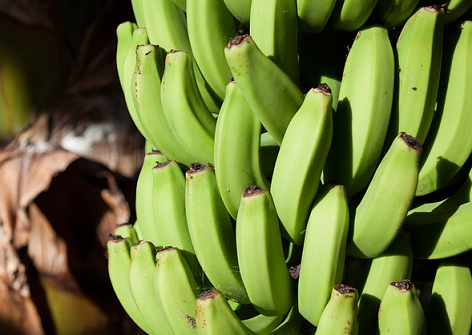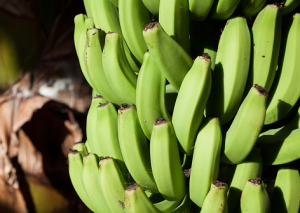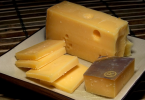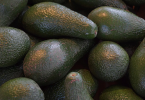Chickens tend to eat pretty much anything you would present them! If you are a chicken owner, you most certainly are already aware of the fact that they are not picky eaters. While enjoying a tasty banana, you might have asked yourself: can chickens eat bananas? Yes, they can and they most certainly enjoy it! Besides providing you with eggs, chickens can be considered great and fun pets to have and lately their popularity as pets has increased greatly. This article provides you with a range of useful tips when it comes to your chicken pets.
Can Chickens Eat Bananas?
Since chickens love to eat, you can give them any veggie trimmings left after finishing your cooking. These are very nutritious for your pets and cost-free! However, not only do they love veggie leftovers but they also enjoy fruits, including bananas. These represent a fun and great treats for your chickens, especially since they will benefit from their richness in potassium. Keep in mind that the peel is off-limits; feed your pets just the inside of the fruit.
Healthy Treat Suggestions for Your Chicken
In order for your chickens to be equally healthy and energetic, you ought to spoil them with healthy treats that are beneficial for them! I will enumerate a few examples of healthy treats your pets will undoubtedly enjoy. The following foods should not be fed daily, but occasionally, in order to avoid the obesity issues that may appear.
- Pumpkins are a great source of antioxidants and minerals such as potassium, calcium, phosphorus, and vitamins A, E and C. They present quite a nutritional snack for your flock and they will enjoy it greatly. You can also feed them the seeds of the pumpkins.
- Mealworms present 49% to 51% protein intake for your chickens. You can either choose to purchase them from a specialized store, or to farm them yourself if you have the possibility. It is a useful treat that stimulates the re-growing process of the feathers.
- Scrambled Eggs. This is quite an unusual treat for your chicken buddies you might think, right? As a matter of fact it isn’t, as eggs are loaded with vitamin A, E and beta carotene which are helpful in the process of egg production. Don’t assume that by feeding your chickens scrambled eggs, they will be inclined to eat raw eggs too! That is a false assumption.
- Dandelions present a great source of honey bees’ nectar. Even if some may consider it equal to a weed, it most certainly isn’t; on the contrary, it embodies a lot of beneficial properties! No wonder it is often used in salads during summer when the leaves are fresh. You might consider growing dandelions in your chicken’s exploring area, as they are a natural source of vitamin A, iron, potassium and calcium. Your chickens will surely have a great time pulling them out of the ground. They will be entertained and get their source of vitamins at the same time!
- Melon and watermelon can also be considered great treats for your feathered pets, being rich in antioxidants and vitamin A. Moreover, they hydrate your chickens greatly, especially during summer time, when the weather is extremely hot. They will love digging the inside of the melon, eating both its seeds and flesh. They will keep digging for hours until the watermelon has completely vanished into thin air!
Does My Chickens’ Diet Affect Their Egg Production?
Of course! If you want to benefit from your very own egg production, you should pay a lot of attention to your chickens’ diet. In order to lay eggs, hens require diets that are high in protein, calcium, vitamin D, phosphorus and other nutrients. Also, plenty of water for drinking is a must, even in wintertime. Inadequate calcium intake will most definitely resume in diminished egg production. Additionally, vitamin D is required in order for the Calcium to be absorbed properly. Therefore, make sure these are abundant in the food you provide your hens with.
Another factor that contributes to the growth of egg production is natural lighting. It is vital to provide your chickens with natural light and the ability to explore. Apparently, a hen requires 14 hours of sunlight to lay one egg. This is why most of the times, chickens lay fewer eggs in winter time, when day light is diminished. Some consider placing a light bulb in their coop, in order to increase their hens’ ability to lay eggs, so this is a solution you could take into consideration.
Related articles:
References:
http://stephaniedayle1.blogspot.ro/2014/01/what-can-i-feed-my-chickens.html
http://www.tillysnest.com/2011/11/what-can-chickens-eat.html
http://www.the-chicken-chick.com/2013/06/5-healthy-treats-for-chickens-and-3.html
http://www.raising-happy-chickens.com/healthy-chicken-treats.html
http://www.backyardchickens.com/a/what-affects-egglaying-and-how-to-increase-egg-production









Leave a Comment